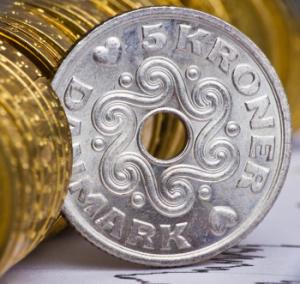find your perfect postgrad program
Search our Database of 30,000 Courses
Postgraduate Study in Denmark
Find courses in DENMARKPLEASE NOTE: As a result of Brexit, from Autumn 2021 postgraduate students from the European Union studying at a UK university will be charged the same tuition fees as international students. Meanwhile, UK students studying their postgraduate course at a European university are also likely to incur higher tuition fees than their EU counterparts. It is advisable to check with the individual universities in the UK and Europe for up-to-date information on tuition fees for all postgraduate programs.
The smallest of the Scandinavian countries, Denmark is often regarded as the bridge between Scandinavia and the rest of Europe. It is indeed the bridging point between Northern and Southern Europe, with its position to the south of Sweden and the north of Germany, providing the perfect base for exploring the Nordic countries.
With a population of approximately 5.5 million it’s a cosy, safe and relaxed country to continue your education. There is an estimated 226,000 students in Denmark, 20,000 of which are international students. It has a decent welfare state in place, although like the rest of Scandinavia the cost of living is rather high.
Denmark features contemporary, vibrant cities like Copenhagen and fabulous rural regions with lovely fresh, green forests. Another major attribute is that beautiful coastline and beaches are rarely more than half an hour away.
The currency of Denmark is the Danish Krone and there are approximately 7.5 Krone to the Euro.

Denmark is a member of the European Union and the Nordic Council. It is also a founding member of the United Nations, NATO and the OECD.
Image credit: Andrei Nekrassov / Shutterstock.com
Denmark: Danish universities and education
Denmark has three different types of higher education institution, and they all offer several options – there are eight universities, 10 university colleges and nine Academies of Professional Higher Education. Between these institutions they offer more than 500 undergraduate and postgraduate degree programmes taught entirely in English, including bachelor’s, master’s and PhD programs.
Postgraduate courses
For a postgraduate degree program students are required to have an internationally recognised bachelor's degree (or equivalent) of a decent standard as well as proof of proficiency in English. If you are a PhD student in Denmark you will usually receive a salary, and there are no tuition fees. Industrial PhDs are collaborations between a university and a company with no obligation to teach.
A Danish PhD program usually lasts three years, with the general admission requirements being a master’s degree or equivalent. Depending on the area of study, occasionally a four-year PhD program will be offered to students who have completed a bachelors degree and one year of study at postgraduate level.
Denmark: tuition fees and funding
 Higher education in Denmark is mostly free for students from the EU/EEA and Switzerland, and for students participating in an exchange program. For students from other countries, annual tuition fees range from €6,000 to €16,000 depending on the postgraduate programme and nation of origin.
Higher education in Denmark is mostly free for students from the EU/EEA and Switzerland, and for students participating in an exchange program. For students from other countries, annual tuition fees range from €6,000 to €16,000 depending on the postgraduate programme and nation of origin.
PHD fees
There are no tuition fees involved with PhD study in Denmark, and PhD students will usually receive a salary.
Scholarships
Most Danish institutions have agreements with institutions of higher education from other countries. These agreements are usually designed for the mutual exchange of students, researchers and teachers. National and European programs offer scholarships for international students wishing to study in Denmark through an institutional agreement, as guest students or as a part of an international double or joint degree, although certain restrictions apply.
Government scholarships
Danish universities and higher education institutions receive a number of government scholarships each year to fund highly qualified full-degree students from non-EU/EEA countries and Switzerland.
To be eligible you need to be:
1. A citizen of a country outside the EU, the European Economic Area or Switzerland
2. Enrolled in a full degree higher education programme
3. Have a time-limited residence permit in Denmark due to education
For further information about the Danish government scholarship, please consult the website of the higher education institution of your choice.
Living in Denmark
Denmark is a small, clean and pleasant country in which to live. The summers are relatively short, but are characterised by their midnight sun, and the longer, darker winters are perked up by the almost national past-time of hot chocolate consumption!
As with all other Scandinavian countries, the cost of living in Denmark is relatively high. However with a few lifestyle adjustments such as investing in a cheap second-hand bike to transport yourself around, and opting for home cooking rather than meals out will all help to make studying in Denmark a more viable option for the money conscious.
Work
As an international student in Denmark you will have the right to work during your studies. Foreign students on degree programmes in Denmark are allowed to work 15 hours a week, as well as full-time during the months of June, July and August (the summer vacation).
International students will also have the opportunity to look for full-time employment once they have completed their studies.
Healthcare and insurance
Healthcare insurance is recommended for people residing in Denmark. You must obtain a residence permit if you want to register with the Danish Civil Registration and be covered by Danish Health Security Healthcare and Insurance.
Denmark: visas and immigration
 If you have come to Denmark from overseas to live, study and work – you will probably need a Registration Certificate and depending on what country you are from you may well need a Residence Permit. The following rules apply.
If you have come to Denmark from overseas to live, study and work – you will probably need a Registration Certificate and depending on what country you are from you may well need a Residence Permit. The following rules apply.
Nordic citizens
If you are a Nordic citizen (ie from Finland, Norway, Iceland or Sweden), you can live, study and work in Denmark without a Registration Certificate or Residence Permit or Work Permit.
EU/EEA-Swiss citizens – Registration Certificate
If you are an EU/EEA citizen or Swiss national you can stay in Denmark for up to three months without a Registration Certificate. However if you are coming to Denmark to study a degree program, the chances are you will be here for longer than three months, therefore you will need a Registration Certificate (if you are an EU/EEA citizen) or a Residence Card (Swiss national). You do not need a Residence Permit. The Registration Certificate and Registration Card are proof of your rights under EU rules.
To get a Registration Certificate you need to go to the Regional State Administration (Statsforvaltningen) within three months upon your arrival in Denmark with:
1. Valid passport.
2. Two passport photos.
3. Letter of Admission from the university.
EU/EEA-Swiss citizens – Residence Permits
If you are an EU/EEA or Swiss citizen and you wish to apply for a Residence Permit you will need the following documentation:
1. Proof that you have been admitted to a higher educational programme in Denmark
2. Proof that you can support yourself with your own means for the duration of your stay in Denmark.
3. To be able to speak and understand the language of instruction and have a working knowledge of either Danish, Swedish, Norwegian, English or German
The duration of your Residence Permit will depend upon how long your studies are due to last – ie your permit will last for he projected duration of the program.
Non-EU/EEA citizens – Residence Permits
If you are a non-EU/EAA citizen, you will need to get a residence permit to study in Denmark. To do this you will need:
1. Proof that you’ve been accepted as a student to a higher education course
2. Proof that you’re completing an entire educational programme in Denmark, or are a guest student following part of a program that you’ve already started in your home country
3. Proof that you can support yourself for the duration of your stay
4. To pay for at least the first semester of your course in advance
5. To be able to speak and understand at least one of the following languages: Danish, Swedish, Norwegian, English or German
Visa to work after your studies
If you’ve been granted a residence permit in order to complete a higher educational programme in Denmark, your residence permit will be valid for an additional six months after completion of the program to allow you to look for work in Denmark. If you complete a higher educational program in Denmark and you haven’t previously been granted the additional six months' residence permit, you can have your residence permit extended by six months in order to look for work. To do this you will have to submit an application for extension.
Family members
If you have residence permit to enable you to study a degree programme in Denmark, then your spouse, registered partner or cohabiting partner, as well as any children under the age of 18 who are living at home with you, are also eligible for residence permits. This is subject to certain financial conditions and all family members must live at the same address as you during their time in Denmark. During his/her stay your partner is allowed to work full-time.
Apply for a Postgrad Solutions Study Bursary
